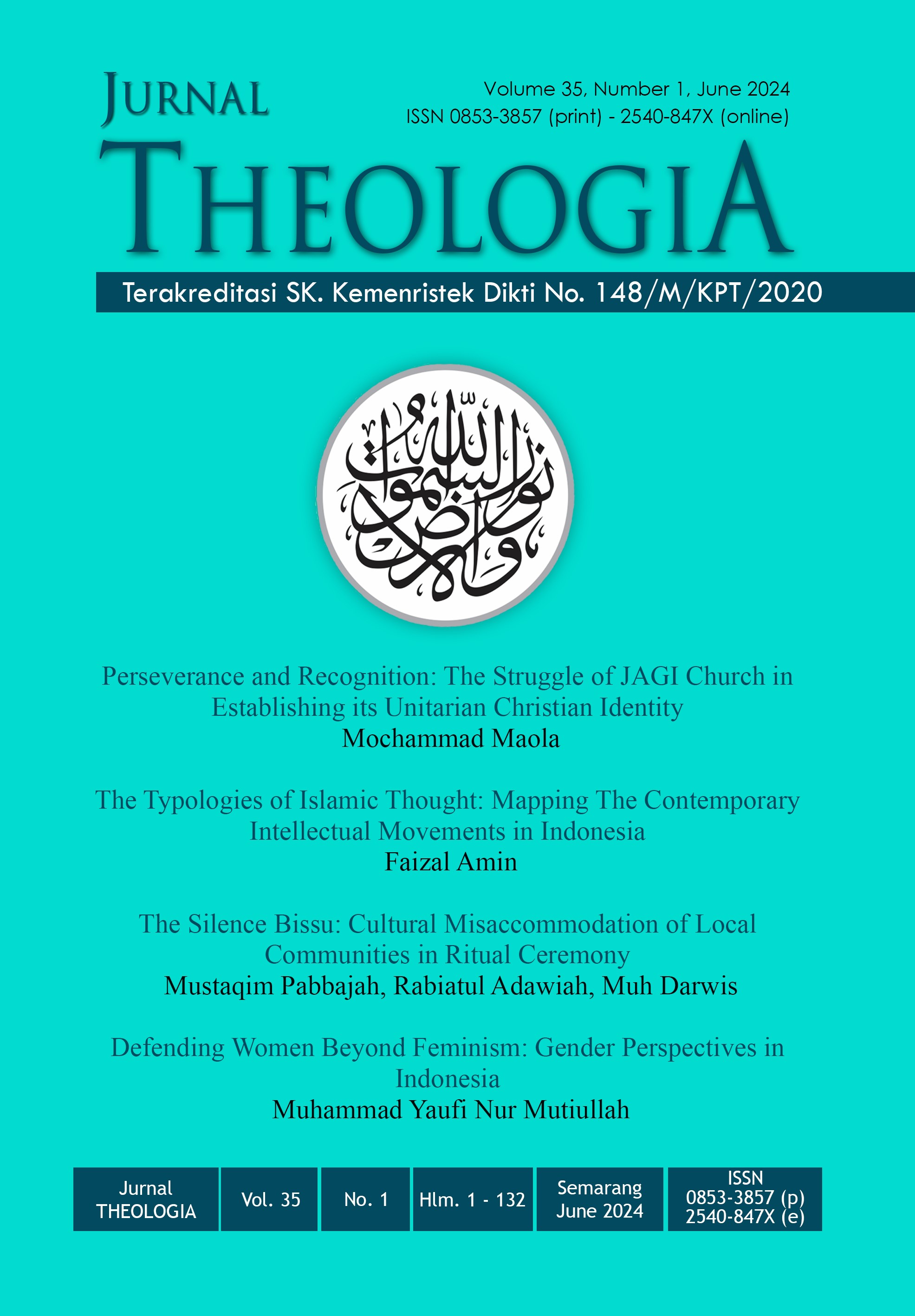Contesting the Non-Muslim Existence In a Democratic State: A Trajectory to Hack Majority-Minority Relations In Indonesia
DOI:
https://doi.org/10.21580/teo.2024.35.2.20231Keywords:
Integration, Democracy, Minority, Majority, SecularizationAbstract
The outbreak of inter-religious conflict today is mostly caused by unequal majority-minority relations, especially in the context of a democratic state—Indonesia. Therefore, it is necessary to reconcile and integrate the Islamic paradigm with the democratic system, especially in a country dominated by one religion. In this article, the author analyzes the social friction between the majority and minority with an intertextuality approach between classical Sunni literature and the development of modern democratic discourse. The author finds that the tradition of Sunni classical fiqh literature was born from scholars who used to live under the auspices of religious states that still considered non-Muslims as second-class citizens. In addition, this article reviews the concepts of state religion and state democracy and the social conflicts that may occur in them. Finally, the author tries to provide an alternative way to integrate the Islamic paradigm and the concept of citizenship and secularization efforts in the form of separation between religious identity and identity as a citizen for better democratic state conduct.
Downloads
References
Howard, Michael. The First World War. 1st ed. Oxford University Press, 2002.
McMeekin, Sean. The Ottoman Endgame. 1st ed. Penguin Random House LLC, 2015.
an-Naim, Ahmad Abdullah. Islam and the Secular State. 1st ed. Harvard University Press, 2008.
Kimball, Charles. When Religion Becomes Evil. Harper Collins E-books.
M. Melzer, Arthur. The Natural Goodness of Man On the System of Rousseau’s Thought. The University of Chicago Press, 1990
Rousseau, Jean-Jacquess. The Social Contract. Oxford University Press 1994
Lijphart, Arend. Thinking about Democracy. 1st ed. Routledge, 2008.
Sulaiman, T. M. Jafar. The Collapse of the House of God in the Shariah Land: The Struggle for the Right to Worship of the Indonesian Bethel Church in the City of Islamic Tourism. Practices of Managing Diversity in Indonesia, CRCS-UGM, 2015.
al-Bajuri, Ibrahim bin Muhammad bin Ahmad. Hâshiyah Ibrâhim al-Baijûrî, vol. 2. Dar al-Hadith Kairo.
Zuhaili, Wahbah, Tafsīr Munīr. vol 2, Beirut: Dār al-Fikr al-Mu’āshir, 2003,
al-Husaini, Taqiyuddin Abu Bakr bin Muhammad al-Hishni. Kifâyah al Akhyâr. Dar al-Badr.
al-Mahalli, Jalaluddin. Kanzu al-Râghibîn. Dar Gad al-Jadid, 2018.
Rawls, John. The Idea of Public Reason (Revisited). The University of Chicago Law Review, 774.
Huwaidy, Fahmi. Muwâthinûn lâ Dzimmyûn. 3rd ed. Dar Syuruq, 1999.
Kimball, Charles. When Religion Becomes Evil: Five Warning Signs. HarperOne, 2008,
Hefner, Robert W. Civil Islam: Muslims and Democratization in Indonesia. Princeton University Press. 2000.
Hallaq, Wael B. The Origins and Evolution of Islamic Law. Cambridge University Press, 2005.
Saba, Paul. Religious Identity and the Politics of Exclusion. Routledge, 2013.
Downloads
Published
How to Cite
Issue
Section
License
Copyright (c) 2024 Jurnal Theologia

This work is licensed under a Creative Commons Attribution-NonCommercial-ShareAlike 4.0 International License.




















